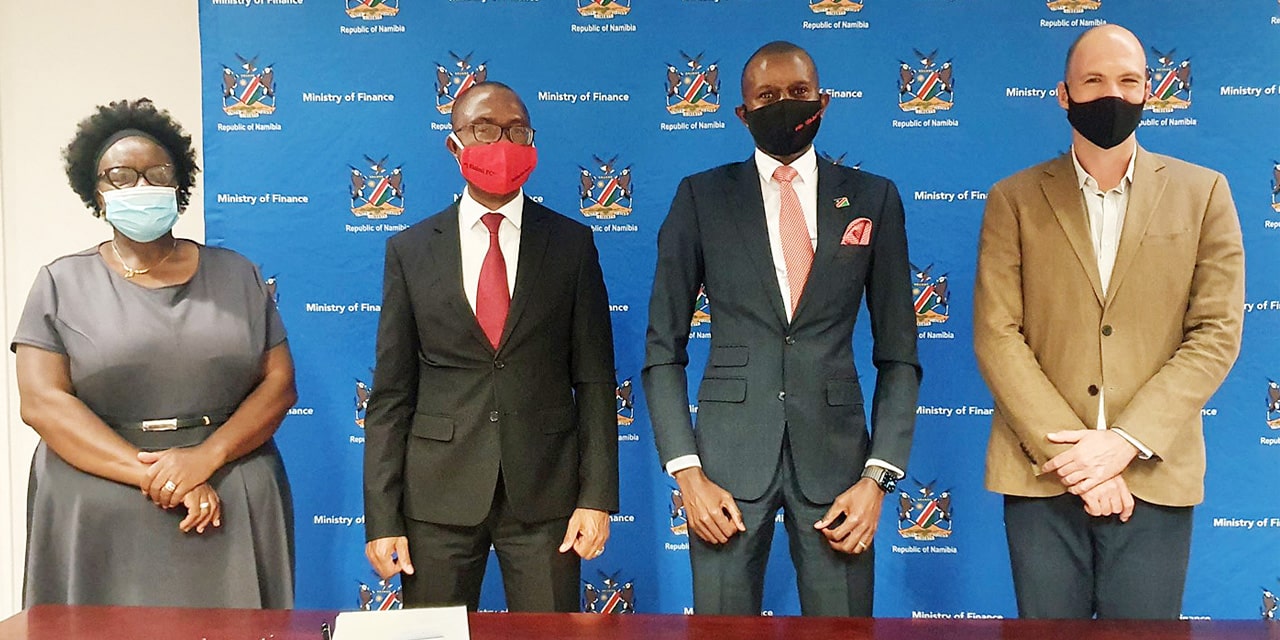Andrew Kathindi
Newly appointed Namibia Revenue Agency (NamRA) Commissioner, Sam Shivute has vowed zero tolerance for tax avoiders. He said he would not be intimidated in his pursuit of tax collection.
This comes six years after it was alleged that Shivute’s tenure as the Commissioner for Inland Revenue in the Finance ministry came to an end when he pursued certain non-tax-compliant business people. It is alleged that he received personal threats as a result.
“In NamRA, integrity and good ethics will be non-negotiable and there will be zero tolerance to corruption. We will endeavour to have the right staff, with right skills and right mind-sets in right positions,” he said during his official unveiling on Thursday.
“A strong revenue service and customs administration is the fundamental cornerstone of an effective State and key enabler in Government’s ability to fund expenditure and provide for its people. NamRA will serve efficiently with passion to positively impact the livelihoods of every Namibian. NamRA will serve in the best interest of all Namibians and it will carry out its mandate without fear and favour.”
This comes after former finance minister Calle Schlettwein in recent years condemned northern businesses for failing to pay the appropriate level of taxes, citing that in the 2015/16 financial year, only N$36,86 million was collected from 81,114 Oshakati taxpayers, an amount adding to only about N$450 per taxpayer.
Meanwhile, finance minister Iipumbu Shiimi revealed that the NamRa Act was still not in force and thus NamRA as an institution does not yet exist. This is in spite of Shivute’s appointment to lead the yet-to-exist institution.
“Until such a date, tax and customs and excise functions and the day-to-day operations will continue to be provided by the Department of Inland Revenue and the Directorate of Customs and Excise under the Ministry of Finance as has been the case.
As such, during the transitional period, the NamRA Commissioner will not have tax administration powers. Such powers will continue to be vested in the Commissioner of Revenue and Commissioner of Customs and Excise,” said Shiimi.
According to the Finance Minister, Shivute was announced as part of a proclamation process to start preparatory work, to ensure the Act is administered.
“Once the preparatory work is completed, we can then switch on to NamRa.”
The minister also explained that NamRA will constitute a transformation of the current Department of Inland Revenue (IRD) and the Directorate of Customs and Excise into a new semi-autonomous revenue agency, outside the normal public service system.
Shiimi also stated that it is not yet clarified whether the tax collection agency once operational will serve directly under his ministry or operate as a state-owned enterprise (SOE).
“The final decision lies with the Minister of Public Enterprise, “who classifies institutions in terms of the law, what is a public enterprise, what is an extra budgetary fund, what is a non-commercial public enterprise – the Ministry is still busy with that work to see how best to classify.”
Amidst job losses and salary cuts, there has been a call for government to offer tax holidays. This comes as the finance ministry only managed 24 percent registration out of its 90 percent goal for its Integrated Tax Administrative System (ITAS). In his budget delivery, Shiimi noted that “the external and domestic demand shocks and trade disruptions will result in about 32.8 percent decline in VAT collections.”
The finance minister however said the decisions on tax holidays remain with his ministry and not with NamRa.
“They’re administrators; they’re collectors. That decision is taken at a policy level. Sam will not know whether there will be tax holidays. Of course, we will consult with NamRa as we go along, but the ultimate decision as to how the tax policy should be lies still with the ministry. NamRa is our collection agency.”
“We do not expect, NamRa as our collecting agency to favour anybody,” said Shiimi.




